2025 OEST Section Award Winners
published Jul 18, 2025 11:49amNAGT recognizes the 2025 Outstanding Earth Science Teachers who inspire students in the geosciences. We celebrate these exceptional educators who were selected as NAGT Section Winners because of their work with students and communities.
Eastern Section: Carolina E. Castro-Skehan, Comprehensive Model School Project, New York
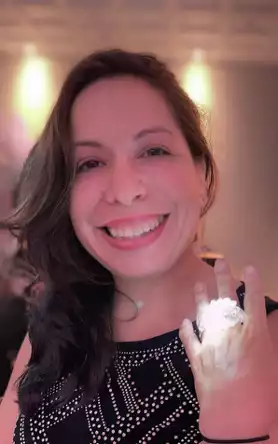
With over 22 years of experience teaching Earth Science in challenging South Bronx classrooms, Carolina has developed extensive expertise in accommodating diverse student abilities through tailored instructional strategies informed by individualized educational plans and assessment data. She has made significant contributions to academic development at both the school and state levels, serving as an educational specialist for NYSED and co-authoring required Earth Science laboratory activities, while also developing school-wide strategies that support students' opportunities to meet their potential. Carolina's community engagement includes implementing sustainability initiatives such as the NYC Open Street program and the NY Sun Works hydroponics program, which produces over 200 pounds of produce annually for distribution to the school community and local food banks, addressing food insecurity while providing hands-on learning opportunities.
Far Western Section: Jessica Stellmann, STEM Education Program, USC Joint Educational Project, CA
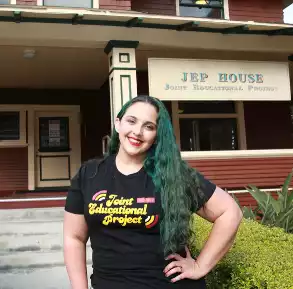
Her work demonstrates exceptional commitment to serving underrepresented communities, providing STEM instruction to thousands of minority students and hundreds of educators across Los Angeles. She ensures inclusivity through culturally responsive pedagogy, including translating materials into Spanish for English language learners. Her contributions extend beyond USC through partnerships with institutions, like the Cabrillo Marine Aquarium, and publication of her AR-based geoscience education research in The Earth Scientist (2021). As Interim Director, she successfully maintained program quality while managing operations and developing interdisciplinary curricula that integrate cutting-edge USC research into educational programs.
North Central Section: Dana Smith, Bemidji Middle School, MN
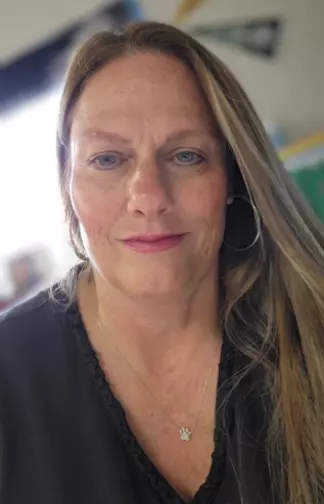
Smith's professional contributions extend significantly beyond her classroom through her pioneering work in Minnesota's science education policy and professional development. She led the integration of Earth Science into Minnesota's NGSS-based standards, successfully advocated for Earth Science as a graduation requirement, and initiated the Minnesota Earth Science Teacher Education Program (ESTEP), securing $900,000 in state funding. Her leadership roles include serving as advocacy chair for the Minnesota Science Teachers Association board, coordinating approximately 10 courses for 200 teachers annually through ESTEP, and holding multiple positions, including president of the Minnesota Earth Science Teachers Association and various committee memberships focused on advancing science education standards and implementation.
Northeastern Section: Greg Stott, Frances C. Richmond Middle School in Hanover, NH
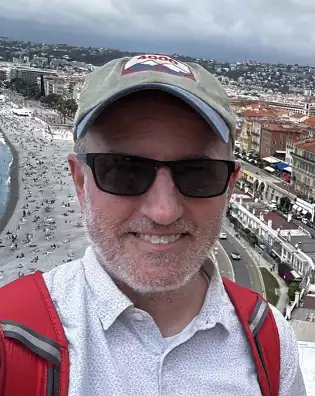
Greg demonstrates continuous professional growth through sabbaticals, internships, and advanced study opportunities, recently completing the Christa McAuliffe Annual Sabbatical Award program in 2023 to research Glacial Lake Hitchcock, resulting in a documentary film called "The Last Ice: Glacial Lake Hitchcock". The film premiered at the NH Film Festival. His community engagement extends throughout the Connecticut River Valley, where he presents his work at colleges, libraries, and museums, while maintaining partnerships with Dartmouth College's Earth Science Department and the US Army Corps of Engineers' Cold Regions Research and Engineering Lab. He has secured numerous grants for curriculum development, participated in specialized programs including the GK-12 Program and Geoscience Teacher in the Park at Mt. Rainier, and created educational resources, including a comprehensive Google website with lesson plans and New Hampshire geological maps for educators.
Pacific Northwest Section: Emily L. Carson, Olympia High School, WA
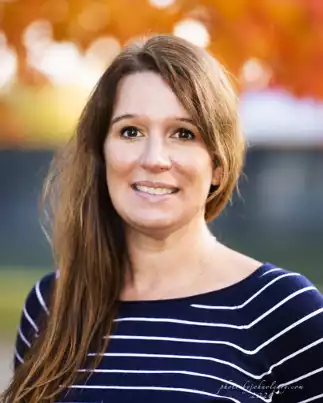
Emily's leadership extends beyond her classroom through multiple professional roles and innovative initiatives. She teaches college-level courses through the College-in-the-High School program, requiring equivalent qualifications to university instructors, and serves as a coach for the Partners in Science program, mentoring other teachers in research partnerships and leading professional development workshops on inquiry-based teaching. Additionally, she advises the Earth Corps Club, managing campus native plant restoration and school-wide recycling programs while collaborating extensively with colleagues to develop new hands-on learning approaches. Emily exemplifies innovative science education by combining rigorous academic content with authentic research experiences and environmental stewardship.
Rocky Mountain Section: Heidi Bankoff, Arvada West High School, CO
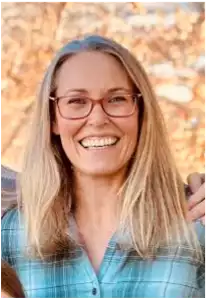
Beyond classroom instruction, Bankoff extends her educational impact through leadership of the Arvada West STEAM Club and active participation in professional development initiatives. Her mentorship has guided students to regional conferences and national competitions, with one group qualifying for the national wind turbine design competition. Her dedication to excellence was formally recognized with the December 2024 Jeffco Talented Teacher Award for Extraordinary Student Experiences, acknowledging her ability to create meaningful learning opportunities that foster both academic achievement and genuine enthusiasm for STEM fields among her students.
South Central Section: Stacy M. Ferrell, Rayburn Intermediate School, TX
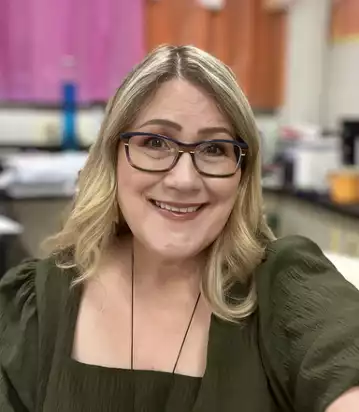
Ms. Ferrell's strengths include her willingness to self-reflect and continuously improve her science education delivery, along with her commitment to community engagement through supporting students in extracurricular activities and leading daily "Good Things" discussions that connect science to students' real-world experiences. Her expertise was enhanced through attendance at the TAMU G-Camp for Teachers, a two-week hands-on Earth Science program across Colorado, New Mexico, and Texas, which generated her enthusiasm for geology that she now shares through real samples, photos, and examples. She extends her impact beyond the regular school year by teaching summer school to help bridge learning gaps for district students.
Southeastern Section: Rebekah Stanton, The School for Science and Math at Vanderbilt, TN
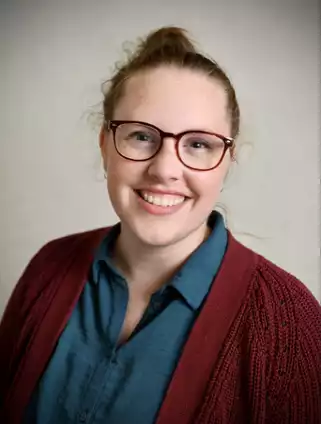
Stanton demonstrates exceptional commitment to student mentorship and community engagement through her work with the year-long junior research program, where she dedicates over 100 hours annually to guide students through independent projects for national competitions. She leads Community Engaged Research Projects, including partnerships with Roberts Academy for dyslexia students and the Tennessee Environmental Council for pollinator gardens. Her teaching approach addresses diverse student backgrounds by developing structured worksheets and scaffolded learning experiences that build scientific literacy and confidence. Beyond the classroom, she maintains active scholarship with recent publications in the Journal of Biological Invasions and is preparing her curriculum materials for publication in practitioner journals.
Comment? Start the discussion about 2025 OEST Section Award Winners
